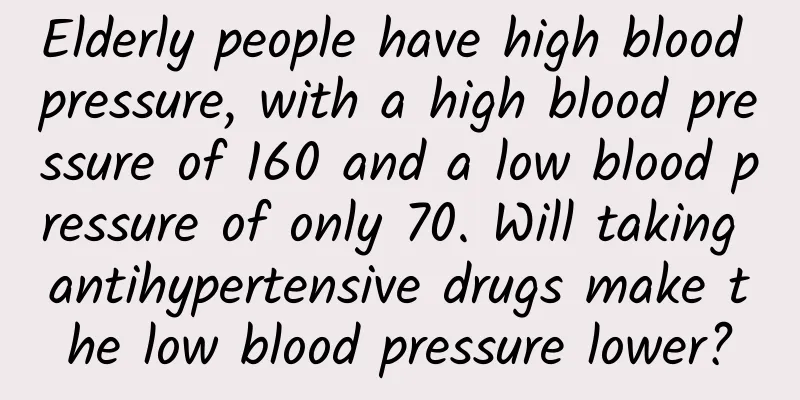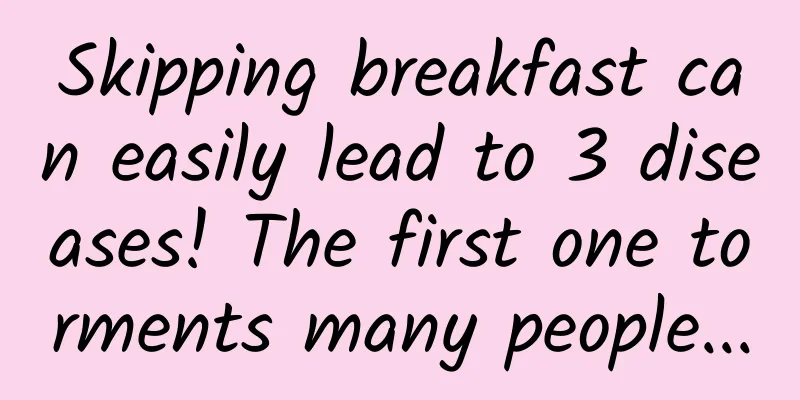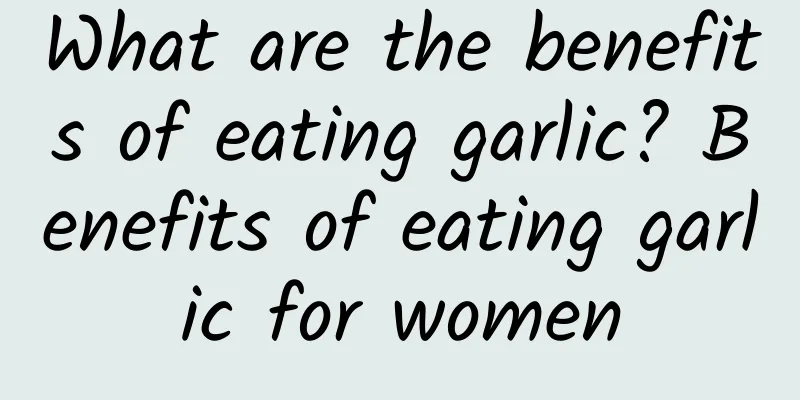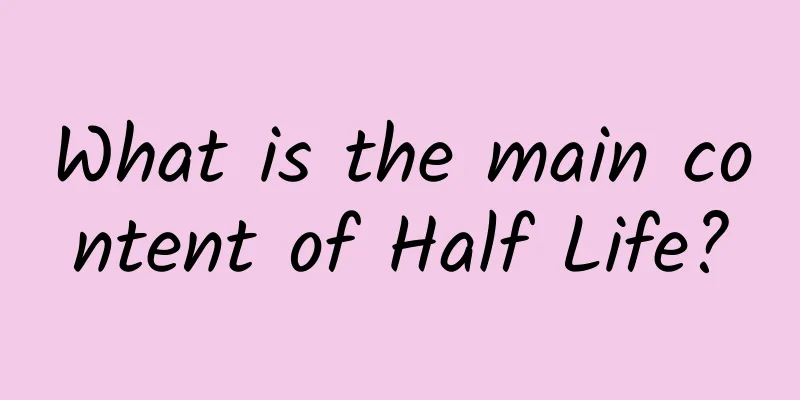Elderly people have high blood pressure, with a high blood pressure of 160 and a low blood pressure of only 70. Will taking antihypertensive drugs make the low blood pressure lower?

|
An elderly friend told Huazi that his high blood pressure is over 160mmHg, but his low blood pressure is only 70mmHg. Does he need to take antihypertensive drugs? If he takes the medicine, will his low blood pressure drop even lower? Is there any antihypertensive drug that only lowers the high blood pressure but not the low blood pressure? Huazi told him that there is no antihypertensive drug that can only lower high blood pressure. All antihypertensive drugs can lower both high and low blood pressure. In his case, he should consider his physical condition, the condition of his disease and other factors comprehensively and control his blood pressure in the safest way. 1. High and low pressure in the human body The blood in the human body flows with the power provided by the contraction of the heart, but the blood pressure is not always generated by the heart. When the heart contracts, the pressure of the ejected blood on the walls of the aorta is high pressure (systolic pressure), and the aorta expands to accommodate the blood. When the heart relaxes, the aorta relies on its own elasticity to retract and push the blood to continue to flow to the peripheral arterioles. The pressure of the aorta wall on the blood is low pressure (diastolic pressure). That is to say, high pressure is generated by the heart, while low pressure is generated by the aorta. As people age, the elasticity of the aorta decreases and hardens, which makes it difficult for the aorta to expand when the heart ejects blood, and high pressure rises. When the heart relaxes, the elasticity of the aorta decreases, and low pressure drops. 2. Risks when low blood pressure drops. Large artery sclerosis is an inevitable result of aging, so the characteristic of senile hypertension is that high blood pressure increases and low blood pressure decreases. The blood supply to various organs of the human body is mainly provided by low blood pressure. When low blood pressure is low, it may cause insufficient blood supply to the heart and brain, resulting in symptoms such as palpitations and dizziness. Therefore, when treating blood pressure, a "warning line" is usually set for low blood pressure, which is 60mmHg. When lowering blood pressure, try to keep the low blood pressure above 60mmHg to avoid the impact of low blood pressure on heart and brain function. However, for people with cerebral artery stenosis, they may need to maintain a higher blood pressure to ensure blood supply. For people with low blood pressure below 60 mmHg, it is important to rule out valve diseases, and severe cases require surgical treatment. For example, if the aortic valve is insufficiency, during the diastole, the blood in the aorta will flow back to the left ventricle, and the low blood pressure will be very low. 3. Can people with low diastolic blood pressure take antihypertensive drugs? For elderly hypertensive patients with low diastolic blood pressure and high diastolic blood pressure, lowering diastolic blood pressure can better protect the heart, brain, kidney and other organs. Moreover, elderly hypertensive patients have a good tolerance to lower diastolic blood pressure, so antihypertensive drugs can still be used for treatment. However, the blood pressure reduction process should be steady and slow. Many people worry about what to do if both high and low blood pressure are reduced at the same time after taking the medicine. Although antihypertensive drugs can reduce both high and low blood pressure, high blood pressure is usually more sensitive to the effect of antihypertensive drugs and the reduction is greater. Pay attention to monitoring blood pressure during antihypertensive treatment. As long as the low blood pressure is above 60mmHg and there are no symptoms of insufficient blood supply such as palpitations and dizziness, you can use the medicine and try to reduce the high blood pressure to below 140mmHg, and it is ideal to reduce it to 130mmHg. 4. Regarding the selection of drugs, elderly patients with hypertension usually have high blood volume and increased sensitivity to sodium salt. Therefore, the use of diuretic antihypertensive drugs can reduce blood volume through diuresis and excrete sodium ions, which is more effective in controlling high blood pressure. It is especially suitable for hypertensive patients with combined heart failure. However, diuretics alone usually cannot control blood pressure well, and need to be used in combination with other antihypertensive drugs. Diuretics plus any one or two of "dipine", "pril", "sartan", and "lol" are commonly used antihypertensive plans. But please note that "pril" and "sartan" cannot be used together. If hypertension is combined with coronary heart disease, or if a myocardial infarction has occurred, or if the elderly patient has a heart stent, then the first choice is the "pril" type of antihypertensive drugs, which can reverse ventricular remodeling and have a better protective effect on the heart. People who cannot tolerate the side effects of "pril" can use "sartan" instead. Similarly, it is usually necessary to use two or three antihypertensive drugs in combination to control blood pressure. For patients with high blood pressure and a fast heart rate, "Lol" drugs can be used as basic antihypertensive drugs. On the basis of lowering blood pressure, they can also lower heart rate and enhance heart protection. Patients with high blood pressure and poor renal function can choose "pril" or "sartan" as the basic medication, but it is contraindicated for people with bilateral renal artery stenosis. In summary, elderly patients with hypertension with elevated systolic pressure and low diastolic pressure can use antihypertensive drugs to strengthen the protection of the heart, brain, kidneys and other organs if the diastolic pressure is not lower than 60 mmHg. As a reminder, antihypertensive drugs must be used under the guidance of a doctor. If you find any problems during medication, you should consult a doctor or pharmacist in time. I am pharmacist Huazi, welcome to follow me and share more health knowledge. |
Recommend
What should I do if I get angry when I am pregnant?
The phenomenon of getting angry is very common in...
Can women do moxibustion at night?
With the accelerated pace of life, many wage earn...
Can I eat donkey-hide gelatin cake during early pregnancy?
We all know that donkey-hide gelatin cake has man...
How to treat uterine cold
Many women often feel cold hands and feet, irregu...
Effects of Gynecological Baifeng Oral Liquid
Gynecological Baifeng puree and oil are herbal Ch...
Symptoms of pelvic floor muscle weakness
Pelvic floor muscle relaxation is generally very ...
What's wrong with the hard lump on my chest?
Every woman hopes that her breasts are healthy an...
How to calculate body fat percentage for girls
Most women want to have a perfect body like a sta...
What medicine to use for gynecological diseases
I believe that many female patients will have suc...
What medicine should pregnant women take for severe headaches
Many pregnant women will have headaches during pr...
Is menstrual pain after spotting uterine contraction?
If a pregnant woman has spotting and symptoms sim...
Pain on both sides of lower back in women
Women's bodies are relatively weaker, which m...
Will taking progesterone increase progesterone?
Many women suffer from progesterone deficiency af...
Brown discharge at 5 weeks pregnant
The physical changes of women after pregnancy are...
Why does leucorrhea flow out like water?
Girls will have secretions when they reach a cert...









